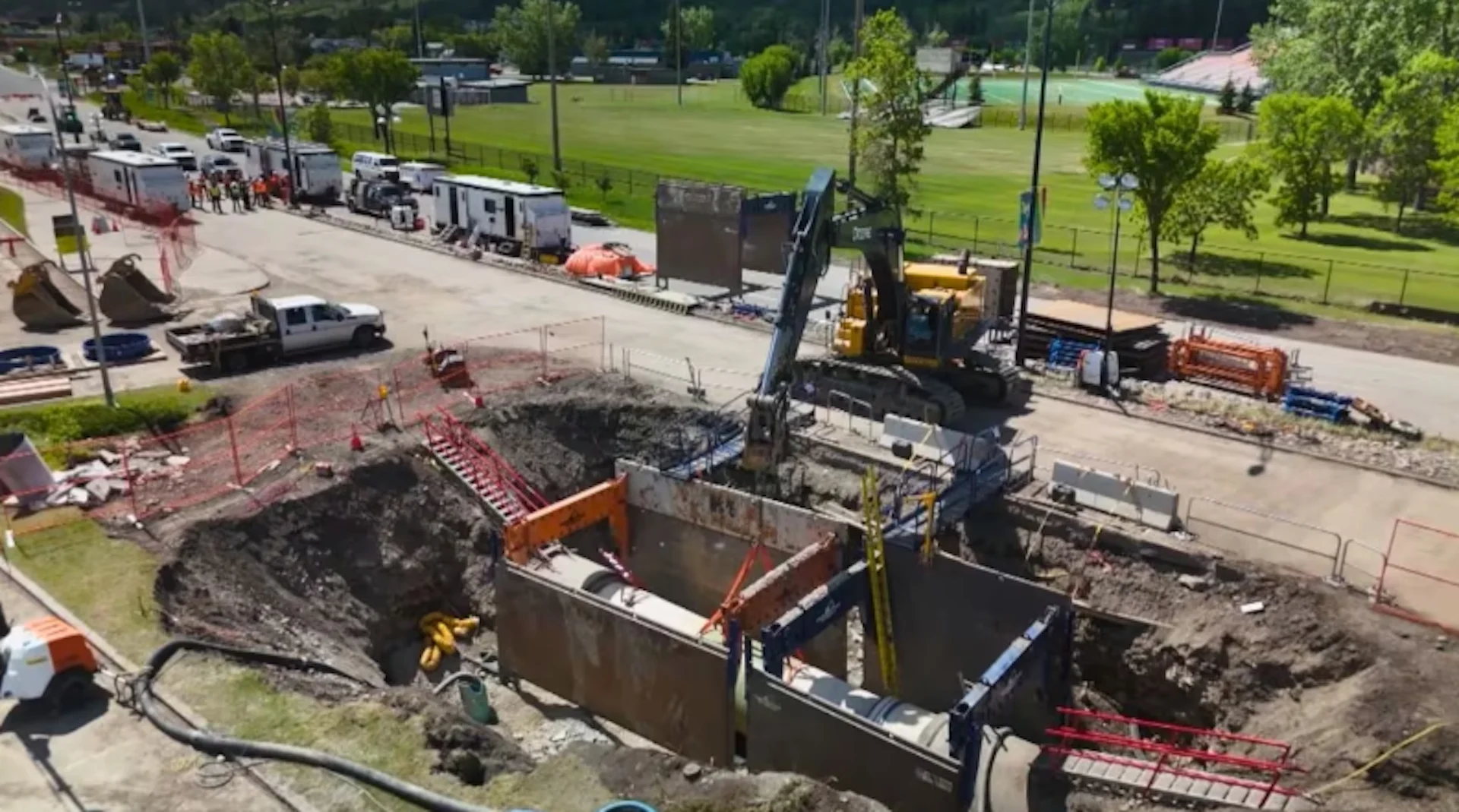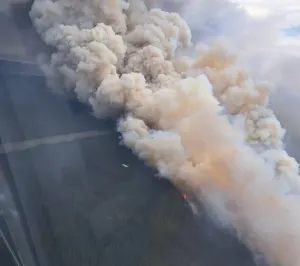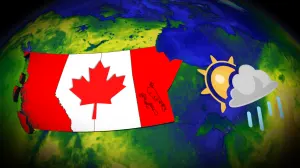
Good news for Calgarians: water levels sustainable and no new breaks
Calgary Mayor Jyoti Gondek and municipal officials had some good news to share about the city's water crisis on Sunday.
During her morning briefing, Gondek applauded residents for taking action to reduce their water consumption.
According to the mayor, consumption on Saturday was lower than on any other day since a catastrophic water feeder main break on June 5 cut the city off from 60 per cent of its drinking water supply.
Just 438 million litres were consumed.
RELATED: Calgary's water restrictions could last weeks as crews find more problems
"It's better than what we hoped to achieve," Gondek said.
"I cannot thank you enough for taking that call to action seriously."
Later, during the afternoon update on the water main break, city officials reported that the robotic inspection of the feeder main was complete and no further trouble spots had been identified. Also, repairs to the section of the water main that caused the original pipe failure have been completed, officials said.
Sunday's news about reduced water usage comes just two days after Gondek made a desperate plea to residents to take water conservation more seriously.
On Friday, she said water consumption had been trending up all week and that 480 million litres had been used on Thursday, surpassing the sustainability threshold.
"I am standing here this morning with one message only," she said.
"We must do better."
On Sunday, Gondek said that Saturday's reduced water usage leaves the city in good shape when it comes to supply.
"We've got about 634 million litres as of 6 a.m. this morning. That means that we have enough water stored to meet demand and also protect ourselves in case of any emergencies," she said.

Officials said that with repair work on the initial pipe break completed the site was being backfilled on Sunday. (Terri Trembath/CBC)
According to figures from the city, the previous low consumption number was hit on Saturday, June 8, when 440 million litres were consumed. That number began trending up the next day, reaching 457 million litres on Sunday, and kept climbing until Wednesday, when water consumption peaked at 489 million litres, an amount that was not sustainable with the elimination of the Bearspaw feeder main, the mayor said.
During the Sunday afternoon briefing, Francois Bouchart, the director of capital priorities and investment with the city's infrastructure services department, said that preliminary results from the robotic inspection of the remaining 300 metres of pipe showed no new hot spots requiring repair. That leaves the five hot spots identified earlier as the only outstanding repair work to be done.
"Repairing the damaged sections remains our top priority," Bouchart said, adding that the five repair jobs will be done concurrently.
He said the estimate given on Friday of three to five weeks until the work is complete still holds, but said the city is actively looking at ways to speed up the work.
Commuters also received some good news Sunday, alongside some that's not-so-good. The section of 16th Avenue NW that has been closed since the water main break occurred will be partially reopened Sunday night at 11, with one lane of traffic flowing in each direction.
But additional sections of 16th Avenue will see closures to allow city crews access to the five repair sites. Those sections include both directions of traffic between 46th and 45th avenues NW, and both directions between 43rd Avenue and Bowness Road. Traffic will be detoured onto Bowness Road and motorists are told to expect delays.
Gondek said the city is investigating some other options for water delivery, including using overland pipes to get water from the Bearspaw reservoir into the parts of the city that need it most.
But she asked for time and patience as city staff collect information and examine the feasibility of different delivery systems.
And until backup systems are in place, consumption will need to stay at Saturday's levels, she said.
Thumbnail courtesy of Monty Kruger/CBC.
The story was originally written by Jim Brown and published for CBC News.









